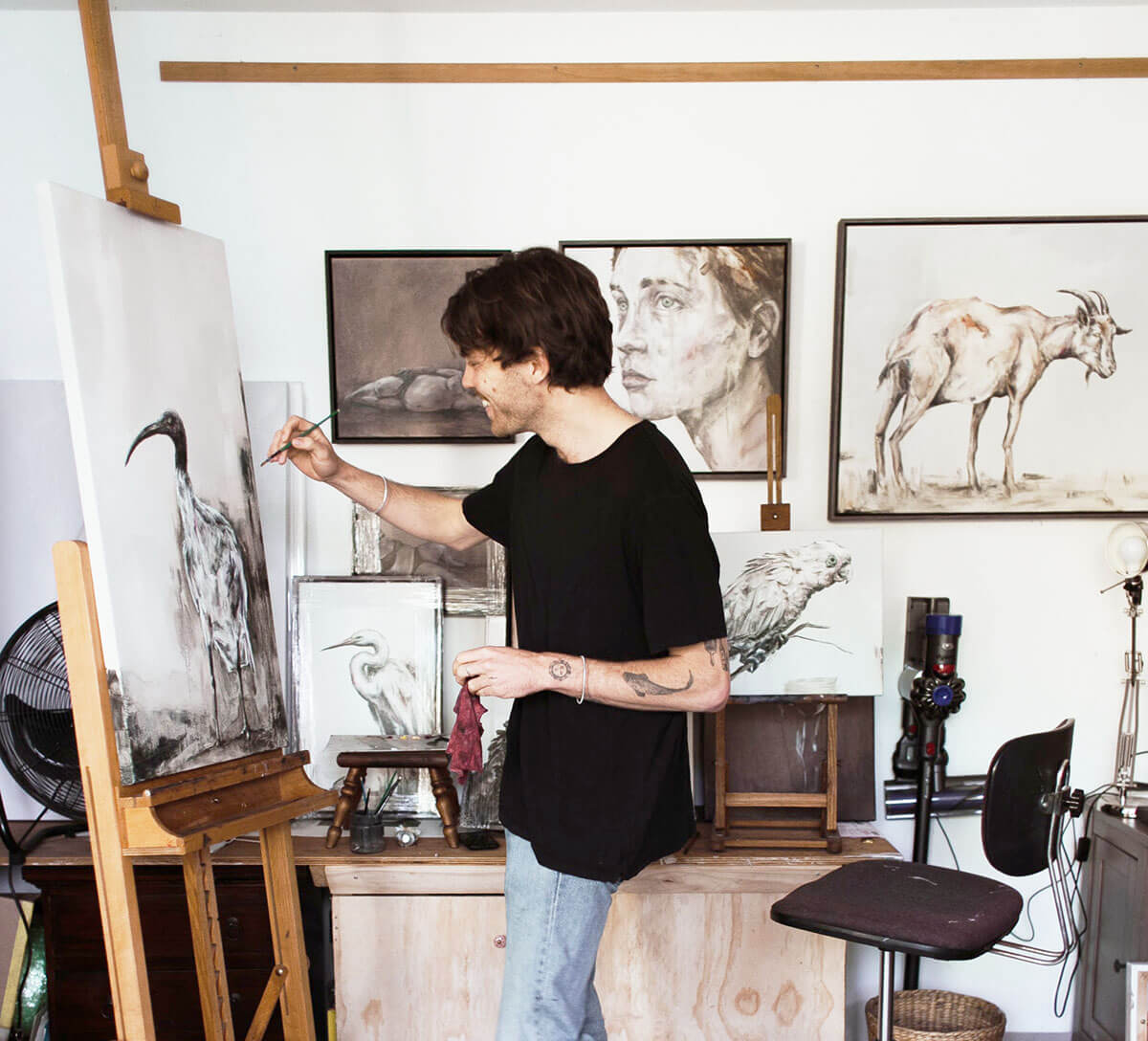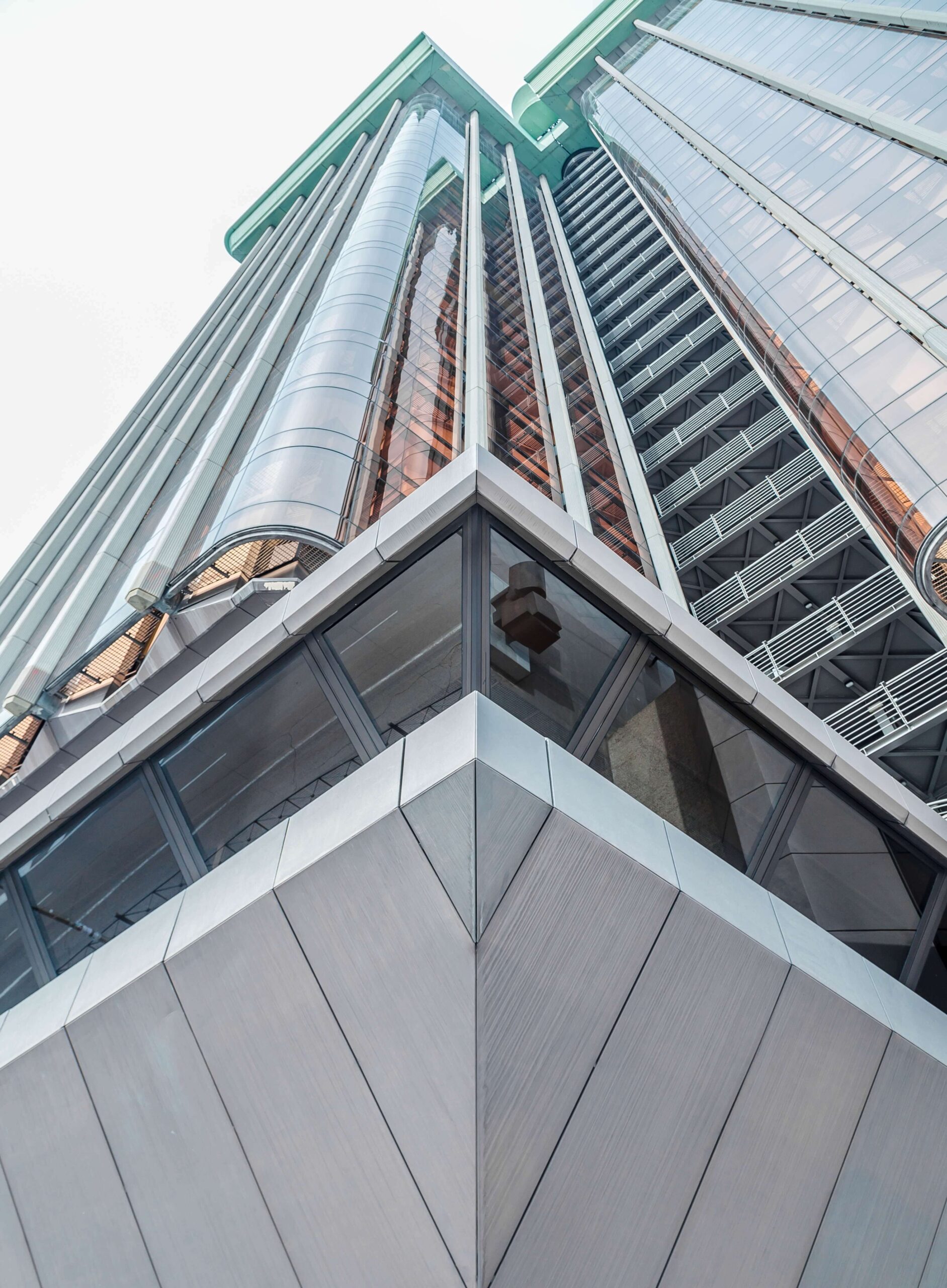:max_bytes(150000):strip_icc():format(jpeg)/TAL-header-exterior-rosewood-amsterdam-RSWDAMSTRDM0525-b81aa662482a4d2ea02207d03e42ac87.jpg)
Rosewood Amsterdam
- Set in the city’s colossal Palace of Justice, a building which started life as an orphanage dating back to 1665, Rosewood Amsterdam sits on the pricey and princely Prinsengracht (Prince’s Canal) in the UNESCO-listed Canal District; it doesn’t get more central—or more quintessentially Amsterdam—than this.
- Dutch design darling Piet Boon douses Rosewood Amsterdam in “comfortable chic” style, as Boon puts it. It’s a maze of high design and high art with more 1,000 pieces on display.
- With killer cocktails inspired by Amsterdam’s punky Provo movement, the hotel’s one-of-a-kind Advocatuur is unlike anything else in the city, with a custom-built copper still for making jenever (Dutch gin) and a secret tasting room set in a former jail cell.
- The hotel’s 134 rooms run the gamut from pensive perches over the canal to positively palatial Houses, of which there are five in total.
The Amsterdammers are curious—of course they are. They’ve been waiting 10 years to see inside the city’s former Palace of Justice, which just opened as the brand-new Rosewood Amsterdam on May 1, 2025. As hotel builds are now being limited to combat overtourism and Rosewood was the last to receive permission to convert an existing non-hotel building into a hotel, it feels like a monumental, era-defining moment for the city, and the locals know it.
It’s opening weekend, and I have to weave through groups of them swarming the spacious lobby, having a sniff around in that delightfully direct Dutch way. Their faces don’t give away much, but one thing is certain: They’re not disappointed.
Daniëlle Siobhán/Rosewood Hotel Group
“It’s a place for the people,” Piet Boon, the Dutch interior designer and dreamer behind the new hotel, tells me. We’re sitting upstairs in The Grand Library, an impressive event space that served as the Palace of Justice’s one-time courtroom. The area where a judge once presided is now dressed with modern tapestry evoking Rembrandt’s “The Night Watch” (the most famous painting from the nearby Rijksmuseum), while a 1920s piano with real ivory keys sits to the side. Because this is Amsterdam, there are florals—fireworks of forsythia, frilly crown imperials, and lustrous ranunculus in eye-popping-orange—everywhere I look.
However impressive this room is, Boon keeps returning to the lobby. “We wanted people to feel they are in Amsterdam the moment they walk in,” he says. “Our inspiration came from the Rijksmuseum, from the museum’s central hall. We took cues from its dignity and warmth.” Any guest who has walked through the museum’s Gallery of Honor, a long corridor leading toward “The Night Watch,” will see the comparison with the hotel’s long lobby, leading here to a digital art piece as a focal point instead of a Rembrandt.
Daniëlle Siobhán/Rosewood Hotel Group
The lobby has a fantastic sense of theatricality, and in comparison to the city’s dollhouse proportions, it does indeed feel grand, but it’s no stuffy museum. I would describe it as the city’s living room with help-yourself pedestal plates piled with crumbly cookies and art designed to be interacted with: The entry is marked with a Studio Molen Statica installation with little movable pieces. Farther on, an art vending machine is displayed, selling limited-edition Casper Braat marble-and-gold sculptures. The mini sculptures pay tribute to the city with designs of canal houses, cones of frites, and stroopwafels. By my visit (on the third day of opening), all of the sculptures of joints (a cool €800 a pop) have been sold out from the vending machine. The check-in desk is tucked off to the side as not to feel like a barrier, and smiley doormen, dressed in the shade of a well-aged Barolo, act as greeters not gatekeepers.
“You can do your thing without feeling like someone is going to ask you what you’re doing here,” says Boon. “It’s comfortable chic.” After a few nights of playing with the art, sipping house-made gin, and bedding down in a well-appointed room over the ribboning canal and elm trees, I can’t help but agree. Here are the highlights of my stay.
The Rooms
Piet Boon first rose to fame as a designer of money-is-no-object private residences, so it’s no surprise that the rooms here feel both intimate and upmarket; mini apartments with Dutch soul and quirky art. Canal-view rooms over the Prinsengracht will no doubt be most popular, while some smaller rooms overlook tiny alleys. Throughout, there are design nods to the building’s former purpose with pleated headboards evoking the folds of judicial robes and legal scales doubling as objets d’art, while the muted color palette feels lifted from a Dutch Old Master. At the top of the offering sits the hotel’s five Houses, stunning in their size and style, especially Library House. Based in the Palace of Justice’s former library, this suite is laid out as an enfilade with an entrance on each end and detailed touches like snow-white crown molding, colossal light features, and enough books to make Belle jealous.
Food and Drink
Ten years ago, when the Palace of Justice first hit the market, Amsterdam’s then-mayor insisted that whoever took over the landmark must infuse some sense of Indian culture into the space, as a tribute to the Netherlands’ large Indian population. Rosewood answered with Advocatuur, outfitted with two tandoori ovens to serve snacks like paneer tikka and baked samosas. But first and foremost, this is a bar and the star of the show is the cocktails, overseen by Yann Bouvignies, who helped make Scarfes at Rosewood London into an award-winning institution. Described by Bouvignies as a “clash of law and rebellion,” this color-drenched bar even has a copper still (named Irene, after a key figure in Amsterdam’s 1960s counterculture Provo movement) distilling a house blend of jonge jenever, branded Provo. An unmissable experience: Go for a Provo tasting in one of the former holding cells. The bar also serves its own beer, POJ (Palace of Justice) Lager, decorated with an illustration of the hotel and made in collaboration with Jopen brewery based in Haarlem, Netherlands.
Outfitted like an English country garden with stone patio flooring and lemon trees, Eeuwen (Dutch for “centuries”) is the spot for breakfast, lunch, and formal dinners. Service isn’t there yet and mistakes are aplenty in these early days, but there’s potential—especially in plates like North Sea shrimp croquettes; oysters from the Dutch province of Zeeland; and pillow-like poffertjes (Dutch pancakes) for breakfast.
Open all day and already a hit with the locals is The Court, an outdoor courtyard dressed in red-and-cream striped awnings and cheery pink tulips. From Piet Ouldolf (the landscaping legend behind New York’s Highline), this is the spot for tea, served on pretty Richard Ginori porcelain plates, and tompouces, the Netherlands’ version of a mille-feuille.
Activities and Experiences
Daniëlle Siobhán/Rosewood Hotel Group
Rosewood is famed for its sense of place ethos, and here, guests are very much encouraged to get out and about to discover the city’s nearby blockbuster attractions, as well as hidden pockets. The hotel has its own classic saloon boat, a yet-to-be-named beauty hewn from teak and mahogany and dating back to 1924. The boat has been fully restored and made electric, and Captain Arnold whisks guests off for nearby adventures in the Duivendrechtse Polder for farm visits or the impossibly charming fishing village of Durgerdam for lunch at De Mark Restaurant. Bicycles (including e-bikes and cargo bikes) are available to rent from the hotel.
With more than 1,000 art pieces on display, the hotel also offers tours of its art collection. Highlights include the Casper Braat art vending machine; colorful Frank Stella reliefs from Rosewood’s private collection in Hong Kong; and two Maarten Baas clock reimaginings (‘Grandfather Clock’ and ‘Grandmother Clock’), with similar pieces found in the Rijksmuseum and Schiphol Airport. There’s also a gallery space for rotating exhibitions.
The Spa
Daniëlle Siobhán/Rosewood Hotel Group
Set on a subterranean level but softly aglow with natural light thanks to light wells in the garden above, Rosewood’s Asaya spa is a temple to serenity. A rarity in the city, the pale sapphire heated pool stretches nearly 40 feet and is flanked by a generously proportioned hot tub (as well as sauna and steam room). Treatments use products by Subtle Energies, Barbara Sturm, and The|Tides, a local wellness brand that uses ingredients like seaweed and algae in its potions.
Family-friendly Offerings
Daniëlle Siobhán/Rosewood Hotel Group
Despite its achingly cool vibes, Rosewood Amsterdam welcomes families with babysitting services, interconnecting rooms, and family pool time every day from 2:00 p.m. to 4:00 p.m. On the hotel’s retail menu, there are a few items for younger travelers, like children’s raincoats and stuffed animals of the hotel’s unofficial mascot cat Benny, based off of one of the hotel’s art pieces by Amsterdam street artist Frankey.
Accessibility and Sustainability
The hotel has two fully accessible accommodations, and there is barrier-free access to public areas, including the spa and dining outlets.
In terms of sustainability, windows are energy efficient to conserve heat; rainwater and wastewater is used in the garden; and systems such as Greenview and Winnow have been implemented to track carbon emissions and manage food waste in real time. The hotel also has a sustainable sourcing policy, prioritizing certified sustainable ingredients for its menus. The hotel’s boat is also fully electric. For the local community, the hotel offers Dutch lessons and culinary training programs for underserved groups.
Location
Rosewood Amsterdam is about a 10-minute drive to Centraal Station, which has direct rail connections to Schiphol Airport and Brussels, Paris, and London via Eurostar trains. The hotel has a fantastically central address (no car is needed), and famous sites, including some of the city’s top theaters and the Museumplein, are just a short walk away.
How to Get the Most Value Out of Your Stay
Rosewood Amsterdam is part of American Express Fine Hotels & Resorts, offering the following benefits: room upgrade upon availability; daily breakfast for two; $100 credit for food and beverage or spa; and guaranteed late check-out until 4:00 p.m. Centurion offers similar benefits, but with a guaranteed upgrade and a $300 hotel credit for stays of two nights or more.
Nightly rates at Rosewood Amsterdam start from $1,361.

:max_bytes(150000):strip_icc():format(jpeg)/TAL-header-exterior-rosewood-amsterdam-RSWDAMSTRDM0525-b81aa662482a4d2ea02207d03e42ac87.jpg?w=872&resize=872,547&ssl=1)






